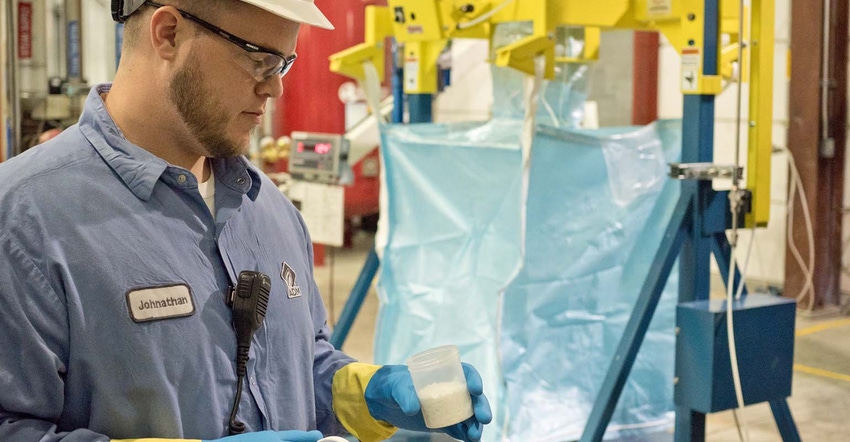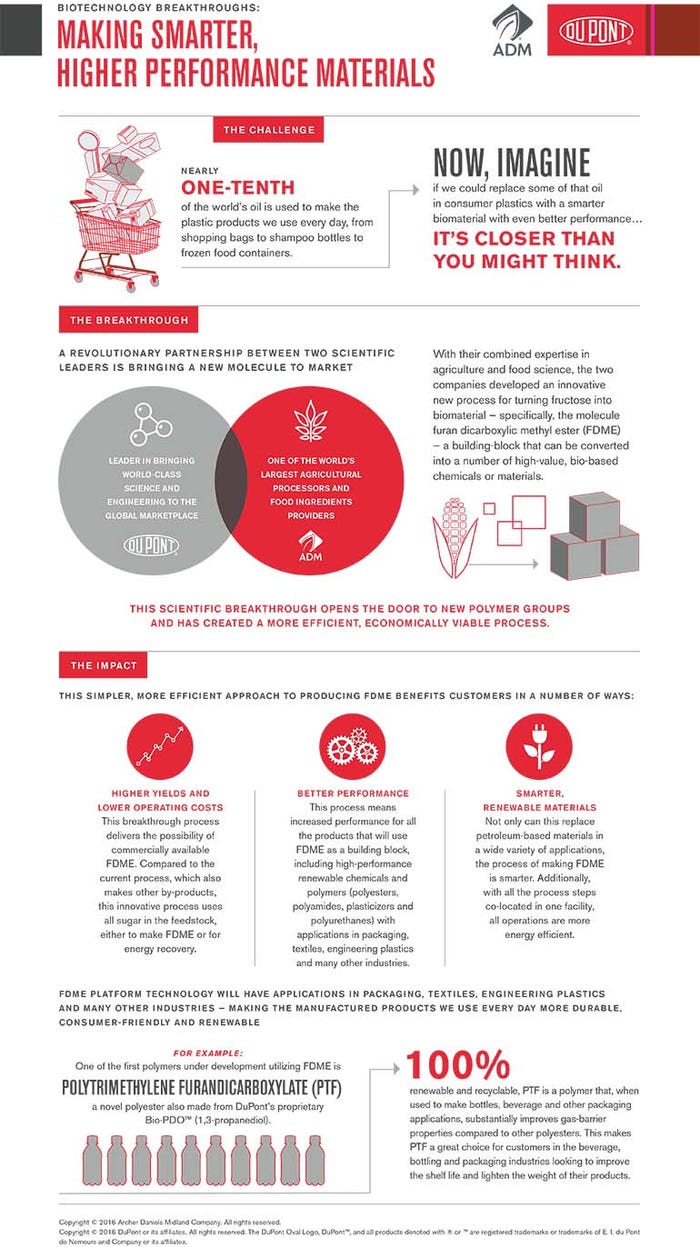
Decatur, IL - Agribusiness giants ADM and DuPont today launched a pilot project to produce recyclable bio-based FDME (furan dicarboxylic methyl ester), a polymer that could replace millions of pounds of fossil-fuel-based packaging in coming years.
One challenge using oil-based plastic is that a thicker bottle is needed to avoid carbonation loss in soft drink packaging. That’s why you see water sold in thin-walled plastic bottles, but not so for carbonated beverages. One of the first FDME-based polymers under development is “PTF”, a DuPont product that could help companies reduce plastic in soda bottles by 25%. Research shows that PTF has up to 10 to 15 times better CO2 barrier performance compared to traditional plastic, resulting in longer shelf life.
“We think this will shrink the amount of petroleum and plastic going into that soda bottle,” says Greg Webb, vice president of government relations at ADM.
Plants not petroleum
Nearly one-tenth of the world’s oil is used to make the plastic products humans use every day. From shampoo bottles to frozen food containers, fossil-fuel-based plastics are virtually impossible to avoid because of a lack of commercially available alternatives — a significant gap in the marketplace that DuPont and ADM’s FDME hopes to address.
While the pilot project will produce 60 tons of FDME a year, company officials predict big things for the corn fructose-based product. “The first commercial plant will be 500 to 1,000 times bigger than this one and there will be many plants,” predicts Michael Saltzberg, global business director for biomaterials at Dupont.
While no one is predicting FDME will impact grain demand at the same level as DDGs or ethanol, the technology is positive for corn farmers. “This helps improve demand through a more diversified portfolio,” says Webb.
It takes about two pounds of fructose to produce one pound of FDME.
“It may not be as significant as ethanol but this has the potential to have significant uptake,” says Saltzberg. “It’s not just pop bottles – we believe this could have an impact on a lot of plastic products, from fuel tanks to packaging. Our goal is to bring this game-changing technology to commercial scale as quickly as possible.”
U.S. Congressman Rodney Davis, R-IL, attended the ribbon-cutting in Decatur, delivering remarks and touring the facility.
“Illinois has always been a hub of agricultural innovation and scientific discovery, and both DuPont and ADM have been an important part of the fabric of our local farming communities,” says Davis. “This facility is a testament to the vitality and vibrancy of my district’s workforce and the critical importance of manufacturing in and revitalizing our rural communities.”

About the Author(s)
You May Also Like






